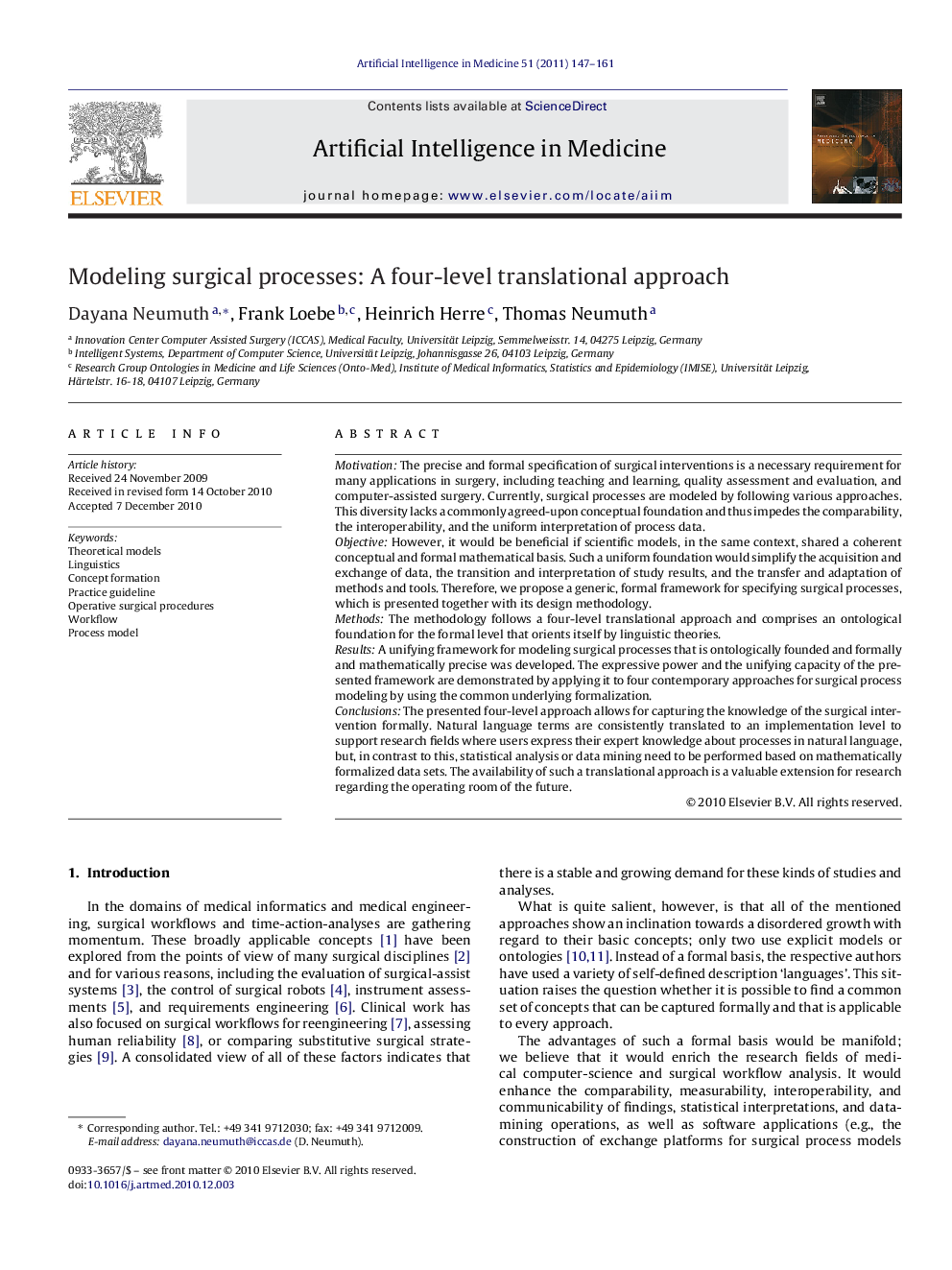| Article ID | Journal | Published Year | Pages | File Type |
|---|---|---|---|---|
| 377877 | Artificial Intelligence in Medicine | 2011 | 15 Pages |
MotivationThe precise and formal specification of surgical interventions is a necessary requirement for many applications in surgery, including teaching and learning, quality assessment and evaluation, and computer-assisted surgery. Currently, surgical processes are modeled by following various approaches. This diversity lacks a commonly agreed-upon conceptual foundation and thus impedes the comparability, the interoperability, and the uniform interpretation of process data.ObjectiveHowever, it would be beneficial if scientific models, in the same context, shared a coherent conceptual and formal mathematical basis. Such a uniform foundation would simplify the acquisition and exchange of data, the transition and interpretation of study results, and the transfer and adaptation of methods and tools. Therefore, we propose a generic, formal framework for specifying surgical processes, which is presented together with its design methodology.MethodsThe methodology follows a four-level translational approach and comprises an ontological foundation for the formal level that orients itself by linguistic theories.ResultsA unifying framework for modeling surgical processes that is ontologically founded and formally and mathematically precise was developed. The expressive power and the unifying capacity of the presented framework are demonstrated by applying it to four contemporary approaches for surgical process modeling by using the common underlying formalization.ConclusionsThe presented four-level approach allows for capturing the knowledge of the surgical intervention formally. Natural language terms are consistently translated to an implementation level to support research fields where users express their expert knowledge about processes in natural language, but, in contrast to this, statistical analysis or data mining need to be performed based on mathematically formalized data sets. The availability of such a translational approach is a valuable extension for research regarding the operating room of the future.
